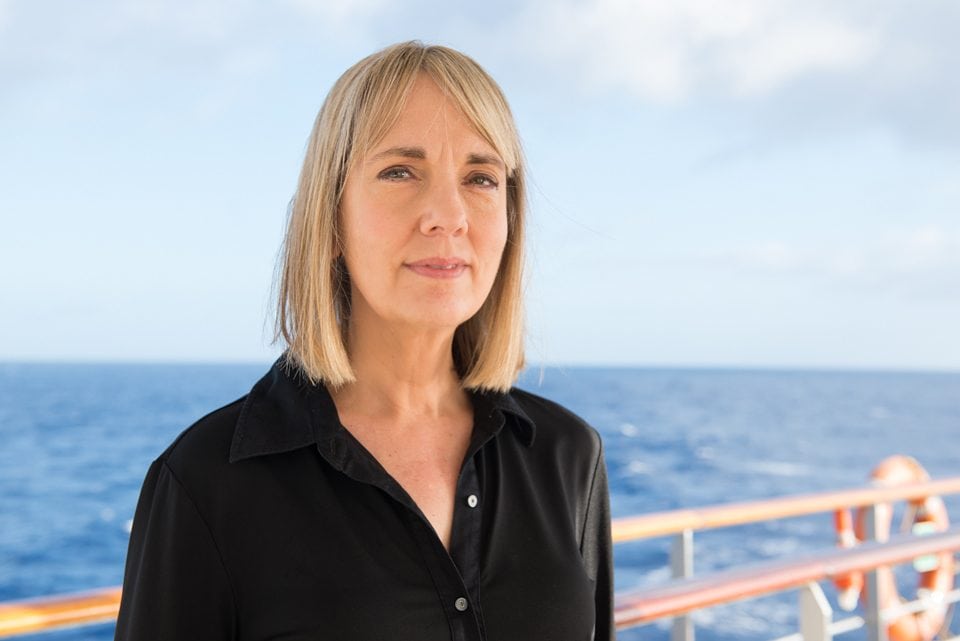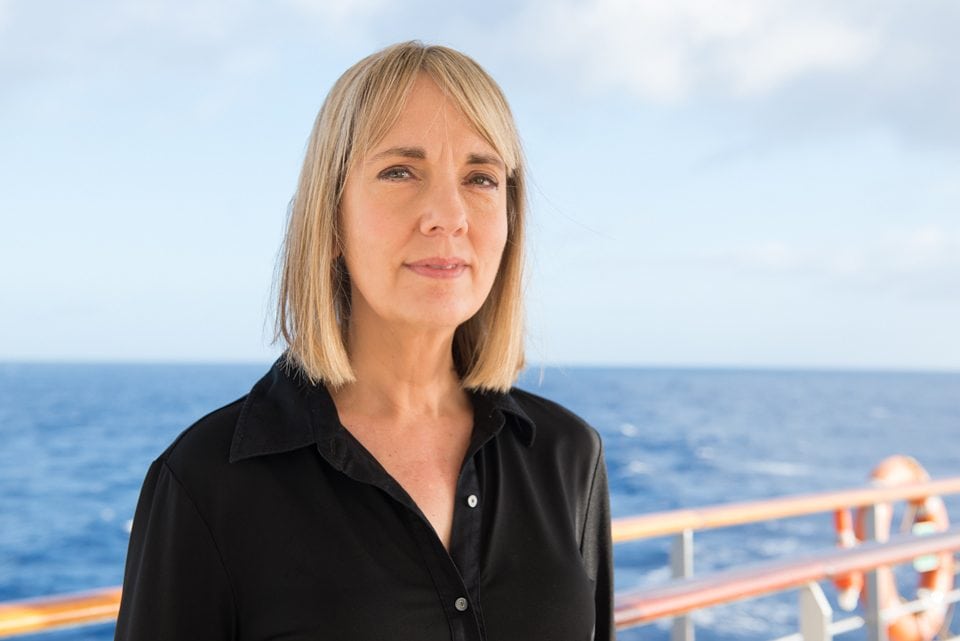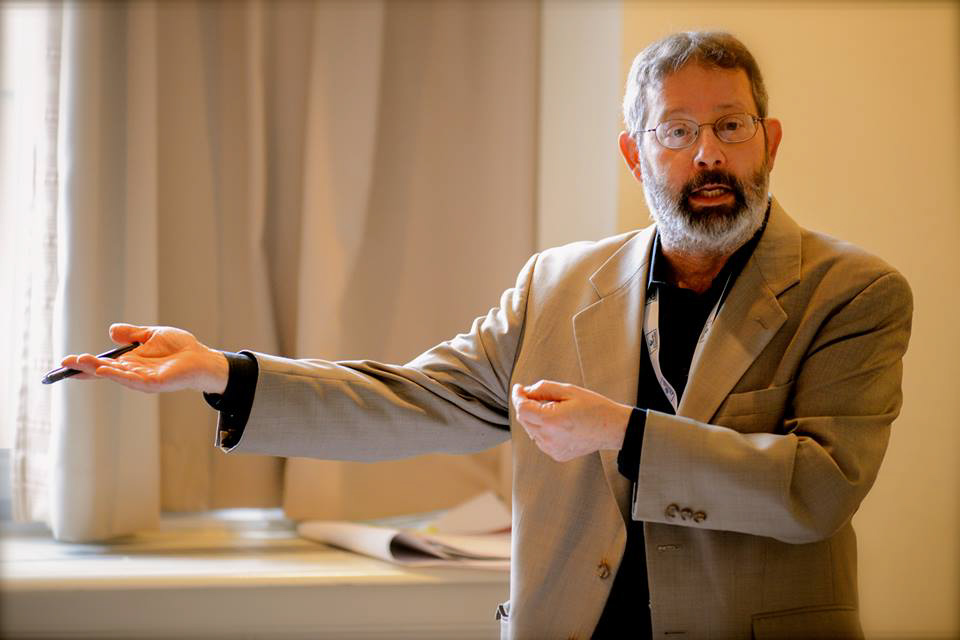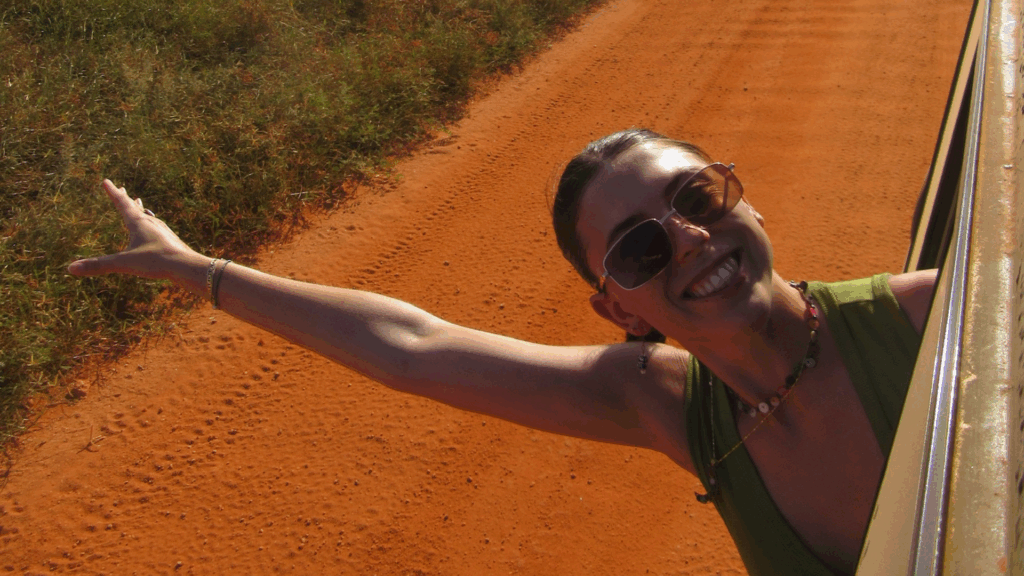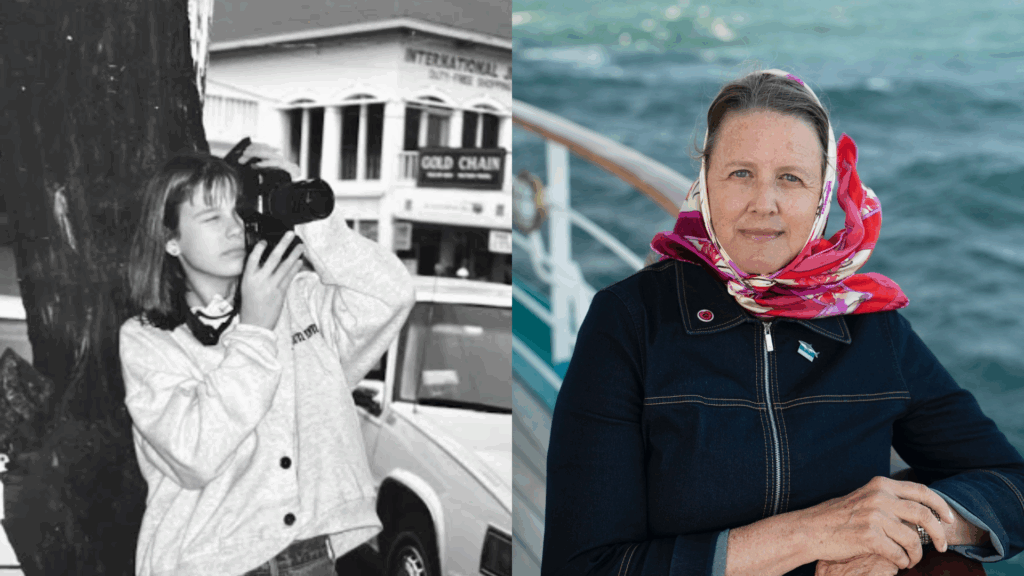Anne Kinney is the Academic Dean for the Spring 2014, 50th Anniversary voyage. When not aboard the MV Explorer, she is a Professor of Chinese and the chair of the Department of East Asian Languages, Literatures and Cultures at the University of Virginia (U.Va.).
She sailed as a faculty member in 2009, so living aboard the MV Explorer is nothing new.
What is new, however, is learning how much work goes into getting ready for a voyage. “Over the past two years I have seen what goes on behind the curtains and the huge number of people who are working day and night to create just one of these voyages.”
I was lucky to sit down with her for an interview in the midst of a very busy first week at sea. Read on to learn about her plans for the voyage, her admiration of Thomas Jefferson’s Academical Village, and her advice for students looking to get the most out of their time with Semester at Sea.
Q: How have you prepared for you role as academic dean?
A: In several ways. I have been working to put the best faculty together for two years. I would research, call and recruit the best of the best. I was not only looking for really great scholars, but also people who are good teachers. We look at that very carefully. At least twice a month, and sometimes more often, all of the U.Va. professors who have previously served as academic dean get together for lunch and talk about the voyages, what we could do differently or what we could do better.
Since students are earning U.Va. credit for their courses, we have to be sure the program on the ship corresponds to the rules and procedures of the university in terms of our policy for course load, course content, conduct issues, honor issues, and grading. Academic deans also meet with ISE (Institute for Shipboard Education) staff for general advice on how to create a coherent academic program with exciting field components.
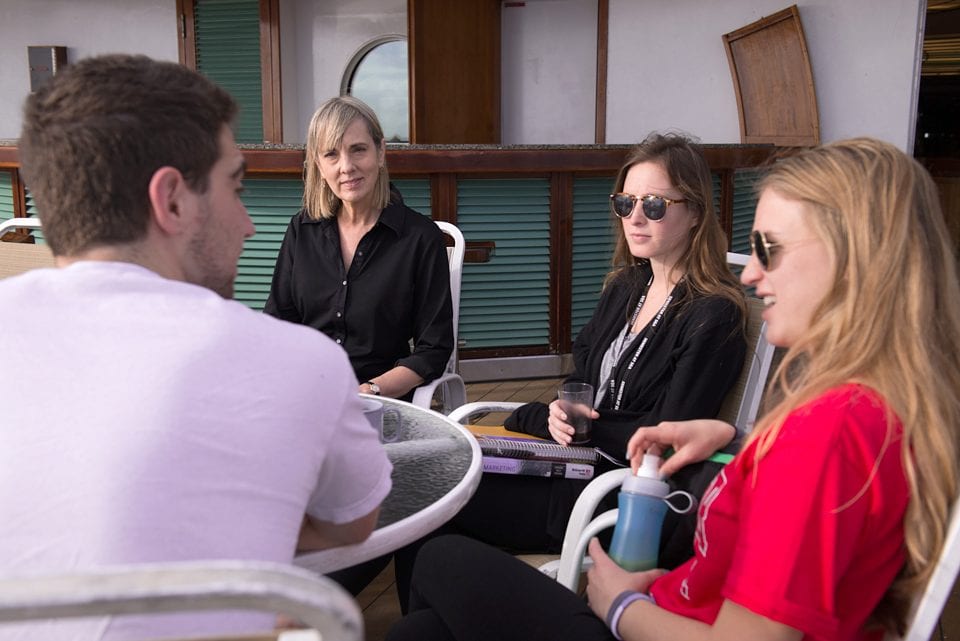
Q: Coming from the Academical Village at U.Va., and being aboard the ship in 2009 to see it in action, how does Thomas Jefferson’s vision inform Semester at Sea?
A: Thomas Jefferson designed the original campus of U.Va. There’s what we call “The Lawn” and at the head of it is the “Rotunda.” On either side of the lawn there are pavilions and Jefferson believed that the professors should live in these pavilions with the students and that there should be a square in the middle.
Jefferson’s idea was that the life of the mind is best served when students and faculty live and work together, and so the ship is the embodiment of his idea. He also designed the University in kind of a U shape, that is, open at one end, and representing the idea that in the life of the mind, it is essential to remain open to the world at large. While in Charlottesville, urban development has made his design more of an architectural metaphor than a reality.
But here we’ve got Tymitz square, we’ve got the professors living with the students, and the open world right in front of us. It’s the perfect embodiment of his ideals.
Thomas Jefferson would be very pleased with this program.
Q: Why would you say having an international viewpoint is important?
A: Because the world is so interdependent right now and I think that nobody can afford to go through life without a deep awareness of how all these countries and economies and political entities are connected with each other. It’s absolutely necessary. It’s quite sad when you see university curricula that really keep students in the silo of what’s happening in just the U.S. It’s good to know that different people do things in different ways and to also be aware of these differences and be comfortable with these differences.
This voyage is going to open up peoples’ minds! It’s going to broaden peoples’ ideas of what it means to be a human being.
Q: What advice would you give to students who want to get the most out of their experience while on the voyage?
A: One of the ways is through the faculty on the ship, who are all experts on subjects pertinent to our port experiences. Also understand that the classroom is important but that the ports are an extension of the classroom too. Students need to get out of their comfort zones and try the local cuisine and go see the sights. I would also urge them to do some independent research projects in each of the ports. Students should go to port with a plan and an idea that is somehow linked to the courses that they are working on. Their research should also be comparative.
The thing about travel is you often stumble upon amazing things, so you need to keep your eyes open and really watch for those opportunities and make the most of them.
Q: What will you bring back from this voyage to your own classroom?
A: A lot! First of all is the idea of experiential learning. I am going to have my own global perspective broadened on this voyage so I will be able to bring that back to my students as well.
When you’re on the ship you really learn about how important and rich the community is here and the importance of engaging with the whole community.
